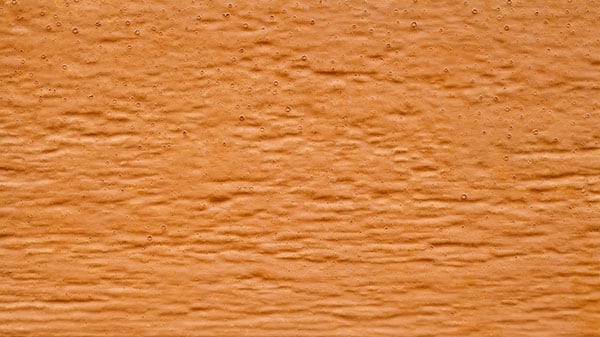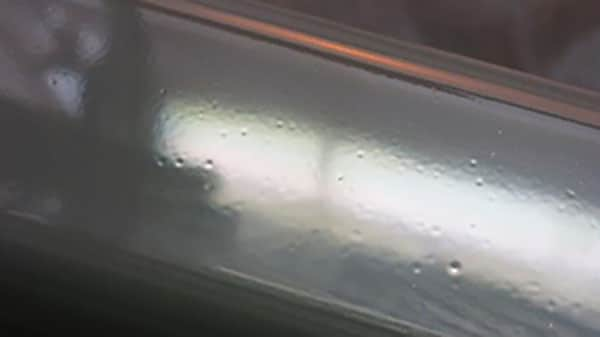Cratering and Dimpling
What are they and how do I solve these?
Cissing (or fisheyes), dimples are defects brought on by the presence of a minute level of surface contaminants during the painting process. However, there are ways to help prevent this and we’ll take you through them below.
Craters are a defect that is usually associated with spray application.
Cissing and Dimpling
How to recognise them
Cissing and dimpling (sometimes known as “Crawling” or “Fisheyes”) are very small circular defects, where the paint has receded to expose the underlying substrate or coating. If the central underlying substrate area is visible, the defect is known as cissing. If the central underlying substrate area is not visible the defect is known as a dimple. The defects are usually around 1-3mm in diameter and are normally visible straight after application. Cissing is normally visible straight after application.


Causes and how to prevent them
- They are a direct result of the presence of minute levels of contaminants on the surface. The paint will not wet these materials out (e.g. water on wax, grease or oil) and withdraws to form a bowl shaped depression.
Prevention: Ensure that the surface is clean and free from grease, oil, and any other contaminants prior to application - Cissing/dimpling may also be observed if an unsuitable thinner/retarder has been used.
Prevention: Use recommended thinners/retarders only.
How to prevent them
- Sand and thoroughly clean the surface. Before repainting, try and eliminate the original cause of contamination.
Craters
How to recognise them
Formation of small bowl shaped depressions in the paint film – not to be confused with cissing/dimpling as causes are different.

What causes them
Trapped air or solvent bubbles which have burst to leave small craters as the coating dries.
Prevention
- Check for pinholes or porous surfaces that may have released air.
- On timber, try painting or varnishing later in the day. As the surface cools down, air is pulled into the timber rather than pushed out by increasing temperatures.
- Addition of the recommended retarder thinner may give the air time to fully escape before the paint has cured too far.
- Allow mixed paint to sit for longer so any bubbles can disperse before use.
- Try changing your roller or brush type.
How to treat them
Try and eliminate the cause before sanding back and repainting.